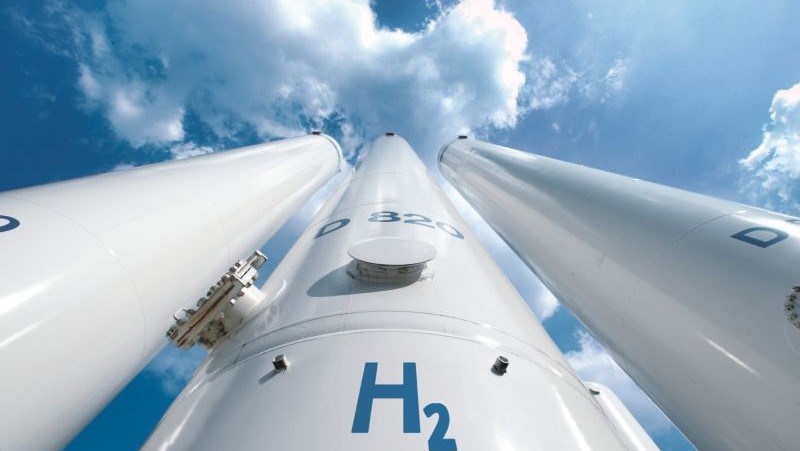Universal Hydrogen has announced the successful test of a ‘megawatt-class’ fuel cell powertrain using its proprietary liquid hydrogen module to supply the fuel.
The liquid H2 module powered the company’s ‘iron bird’ ground test rig for more than 100 minutes. This equates to a regional aircraft flight profile.
Conducted at the Mojave Air & Space Port, this was the first time the H2 module and powertrain had been integrated in a test scenario.
Iron bird is a functional analogue of the powertrain which Universal Hydrogen has been flight testing since March 2023.
The liquid hydrogen module can hold sufficient fuel to power the iron bird for more than three hours at full power. Two full modules can deliver an equivalent range of 500 nautical miles (575 miles, 926 km) when used in an ATR 72 turboprop airliner.
Developed at the company’s engineering and design center in Toulouse, France, the liquid H2 module is the core offering for aviation fuel services. It is said to internalize all complexities of managing cryogenic H2, while externally presenting a simple container interface compatible with existing intermodal freight and airport cargo handling equipment.
Each module can store up to 200 kg of liquid hydrogen for extended periods without boil off. Internal systems convert the cryogenic H2 into gaseous hydrogen used by the powertrain.
Additional features include H2 leak detection and venting systems. There is also a leak-proof quick-connect system for installation and removal from the aircraft.
Tags: Fuel, H2, Iron Bird, Liquid, Universal Hydrogen



Recent Posts
Polish Delegation and JKSH Group Explore Green Energy Project in Andhra Pradesh
bigbasket Expands EV Delivery Fleet to 50 Cities with Support from Kazam
Axpo Completes Spain’s First Ship-to-Ship Bio-LNG Bunkering for Container Vessel at Algeciras
BLG LOGISTICS and Liebherr Strengthen Sustainable Port Operations with Shore Power-Ready Crane in Bremerhaven
Beijing Maersk Enters Service as Latest Methanol-Powered Containership
Yinson GreenTech and C-Torq Deliver Marine Battery System for Hybrid Vessel in the Middle East
Singapore Tugboat Receives Biofuel-Ready Notation Following Retrofit
NYK Names Sixth Dual-Fuel LPG Carrier “Luna Pathfinder”